| Srl | Item |
| 1 |
ID:
132511
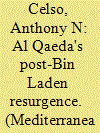

|
|
|
|
|
| Publication |
2014.
|
| Summary/Abstract |
The Barack Obama administration's May 2013 assessment of al Qaeda's weakness and fracturing in the post-bin Laden era has been greeted with indignation by both liberals and conservatives. They believe al Qaeda is stronger than ever in the wake of the Arab Spring. These critics, however, misunderstand the network's dysfunctional direction. Al Qaeda's "resurgence" is likely to lead to its failure. The argument proceeds on four levels: (1) the dramatic growth of the al Qaeda network masks its internal weakness and organizational splintering; (2) the Arab Spring has led to a burst of al Qaeda activism that is likely to undermine its jihadist cause; (3) al Qaeda's fragmentation and its multiple trajectories in the post-9/ 11 era violate bin Laden's original intent and are beyond al Qaeda Central's direction; and (4) the dysfunctional nature of al Qaeda's ideology and its excessive reliance on takfiri violence is paradoxically a source of both persistence and failure.
|
|
|
|
|
|
|
|
|
|
|
|
|
|
|
|
| 2 |
ID:
087601
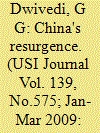

|
|
|
|
|
| Publication |
2009.
|
| Summary/Abstract |
The rise of China as a global power after a brief hiatus of almost 150 years is a phenomenon the world is following with considerable interest. China has pragmatically, adopted, discarded and modified prevalent principles and fundamentals with the singular focus of increasing its influence, power and strategic space.
|
|
|
|
|
|
|
|
|
|
|
|
|
|
|
|
| 3 |
ID:
157034
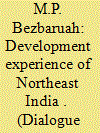

|
|
|
| 4 |
ID:
178792
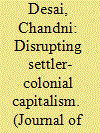

|
|
|
|
|
| Summary/Abstract |
This article explores the resurgence of Indigenous/Palestine solidarity during the Wet’suwet’en land sovereignty struggle in Canada that took place around the same time Donald Trump’s Middle East “peace plan” was released in early 2020. Historicizing this resurgence within a longer period of anti-colonial resistance, the article attends to the distinct historical, political-economic, and juridical formations that undergird settler colonialism in Canada and Israel/Palestine. It contends with the theoretical limits of the settler-colonial framework, pushing back against narratives of settler success, and shows how anti-colonial resistance accelerated economic crises that led both settler states to enter into “negotiations” with the colonized (reconciliation in one case, and peace talks in the other) as a strategy to maintain capitalist settler control over stolen lands. The analysis also sheds light on a praxis of solidarity that has implications for movement building and joint struggle.
|
|
|
|
|
|
|
|
|
|
|
|
|
|
|
|
| 5 |
ID:
148784
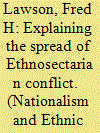

|
|
|
|
|
| Summary/Abstract |
Ethnic civil wars tend to spread to adjacent countries, yet the processes whereby diffusion takes place remain obscure. Quantitative studies point to a wide range of factors and dynamics that drive ethnosectarian conflicts across international borders with no consensus regarding the causal potency of these variables or the ways in which they interact with one another. Surveying the most influential theories that have been advanced so far clarifies the logic of disparate arguments and offers hypotheses that can be tested against particular cases. The civil war in Syria represents one notable instance in which fighting along ethnosectarian lines provoked a revival of political violence in a neighboring state, the Turkish Republic. Applying existing theories to this empirical case clarifies promising directions for future research.
|
|
|
|
|
|
|
|
|
|
|
|
|
|
|
|
| 6 |
ID:
073050
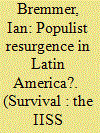

|
|
|
|
|
| Publication |
2006.
|
| Summary/Abstract |
Latin American voters will soon cast ballots in national elections in several countries. Some argue that the region is undergoing a uniform political shift to the left, that mistrust of neo-liberal economics and US foreign policy has united these states in a populist wave of reaction against both, and that this trend will bind these states to countries outside the region, undermining US interests. This generalisation does not withstand country-specific scrutiny. Analysis of the unique political circumstances in each of these states reveals that the populist, anti-American trend is hardly uniform, and that the political and economic ties that bind Latin America and the United States are not so easily undone.
|
|
|
|
|
|
|
|
|
|
|
|
|
|
|
|
| 7 |
ID:
087934
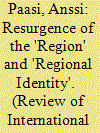

|
|
|
|
|
| Publication |
2009.
|
| Summary/Abstract |
'New regionalism', 'region', 'city-region', 'cross-border region', 'border' and 'identity' have become important catchphrases on the global geo-economic and geopolitical scene. The resurgence of these terms has been part of the transformation of both political economy and governance at supra-state, state and sub-state scales. Regions have been particularly significant in the EU where both the making of the Union itself and the 'Europe of regions' are concrete manifestations of the re-scaling of state spaces and the assignment of new meanings to territory. Such re-scaling has also led to increased competition between regions; a tendency that results from both the neo-liberalisation of the global economy and from a regionalist response. Regional identity, an idea at least implicitly indicating some cohesiveness or social integration in a region, has become a major buzzword. It has been particularly identified in the EU's cohesion policy as an important element for regional development. In spite of their increasing importance in social life and academic debates, regions, borders and identities are often studied separately, but this paper aims at theorising and illustrating their meanings in an integrated conceptual framework and uses the sub-state regions in Europe, and particularly in Finland, as concrete examples. Regions are conceptualised here as processes that gain their boundaries, symbolisms and institutions in the process of institutionalisation. Through this process a region becomes established, gains its status in the broader regional structure and may become a significant unit for regional identification or for a purported regional identity. This process is based on a division of labour, which accentuates the power of regional elites in the institutionalisation processes.
|
|
|
|
|
|
|
|
|
|
|
|
|
|
|
|
| 8 |
ID:
166625
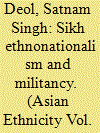

|
|
|
|
|
| Summary/Abstract |
The study primarily answers the question that whether the movement of Sikh ethnonationalism had been defeated permanently during 1990s or whether it still persists? The study perceives that the movement of Sikh ethnonationalism cannot end till the core pivotal ethnic issues, the moving force of the movement are prevailing. The study eventually predicts that the movement will sooner or later rejuvenate from its previous stage, i.e. militancy, as the sociopolitical circumstances of Punjab have been nourishing microclimate for resurgence of the same. In typical political scenario, the moderate outfit of Sikhs is eager to stimulate the ethnic-regional issues of the Sikhs while the radical factions are also observant to ignite the clinkering Sikh ethnic issues once again. Contrarily, the political aspirations of the BJP controlled by the RSS are opposite to the ethno-political demands of the Sikhs. This contradiction, if aroused systematically, has the potential to rekindle the old spark of militant movement.
|
|
|
|
|
|
|
|
|
|
|
|
|
|
|
|